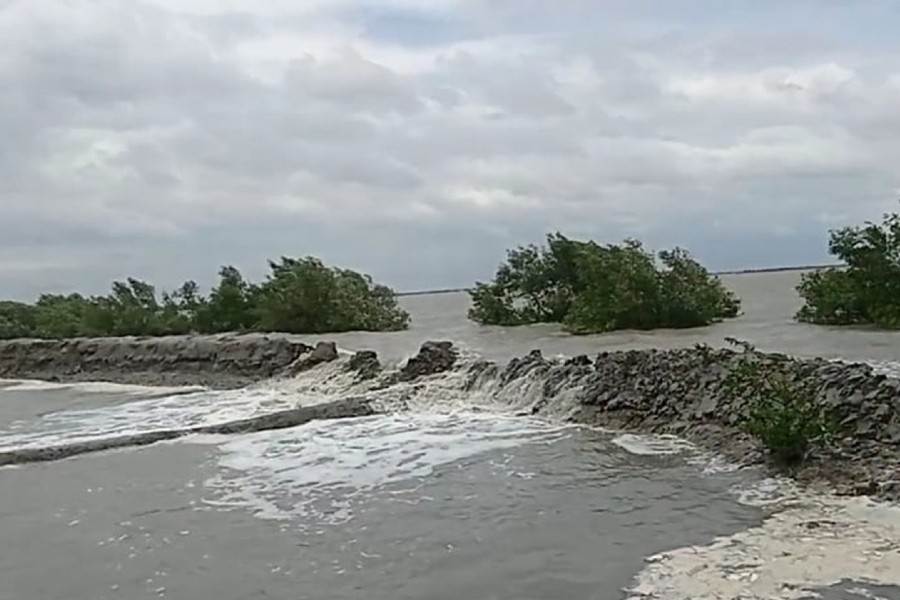Although it is a usual practice every year to launch a work programme to repair flood protection embankments well before the start of the monsoon, there is reportedly no worthwhile activity this year. Along with the maintenance works of the embankments mostly in the southern regions of the country, dredging of rivers, particularly those close to the coastal areas, is also not visible. A recent newspaper report says around a dozen dredging and embankment maintenance projects of the government are not likely to commence work following plans set earlier. This, according to the report as well as the relevant government agency BWDB (Bangladesh Water Development Board), is due mainly to fund crunch. The lingering toll of Covid-19 and the government's austerity measures to slash not-very-important development projects are believed to be the reasons behind stalling the works. But embankment-related works, by any criterion, must not fall under the government specified category of works. That is to say, embankment-related works are highly important, and abandoning them, even for the time being, might cost heavily in terms of life and livelihoods of people, and more than anything, wreak havoc with vast swathes of croplands.
According to experts, these projects are crucial for reducing the damage of croplands and displacement of hundreds of thousands of people, a common phenomenon during the monsoon when rivers of the country swell. Last year, floods damaged crops on over 1.58 lakh hectares of land in 37 districts -- worth around Tk 13.23 billion -- according to the agriculture ministry data. Quoting the Ministry of Disaster Management and Relief, the Centre for Policy Dialogue (CPD) in an assessment of last year's floods noted that around 5.5 million people in 33 districts were badly affected. BWDB has currently at its hand more than 100 projects worth around Tk 428.68 billion for embankment protection, dredging and excavation of rivers and canals in the country. It has been learnt that at the beginning of the last year, BWDB had undertaken a Tk 3.94 billion project for dredging and protecting the river banks. However, till now, the authorities are yet to commence the project work.
The importance of coastal embankments in protecting human habitats and croplands in various regions of the country as well as boosting agricultural outputs, improving livelihoods of the coastal people, and coping with climate change impacts cannot be overstated. Bangladesh's coastal zone spans over 580 km and includes a territory where 28 per cent of the population resides. A higher percentage of the population lives below the absolute poverty line in the coastal area than in the rest of the country.
The country's Coastal Embankment Project (CEP) covers the districts of Cox's Bazar, Chattogram, Feni, Noakhali, Laxmipur, Bhola, Barishal, Patuakhali, Jhalokathi, Barguna, Pirojpur, Khulna, Satkhira and Bagerhat. The CEP comprises a complex network of dikes and drainage sluices and was the first comprehensive plan for providing protection against flood and saline water intrusion in the coastal areas. However, timely repair and maintenance alone can render the project effective, in the absence of which --- as the case is now --- there may be serious consequences from monsoon rain and flash floods in the coming months.


